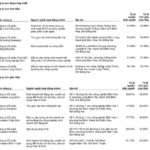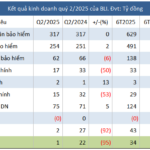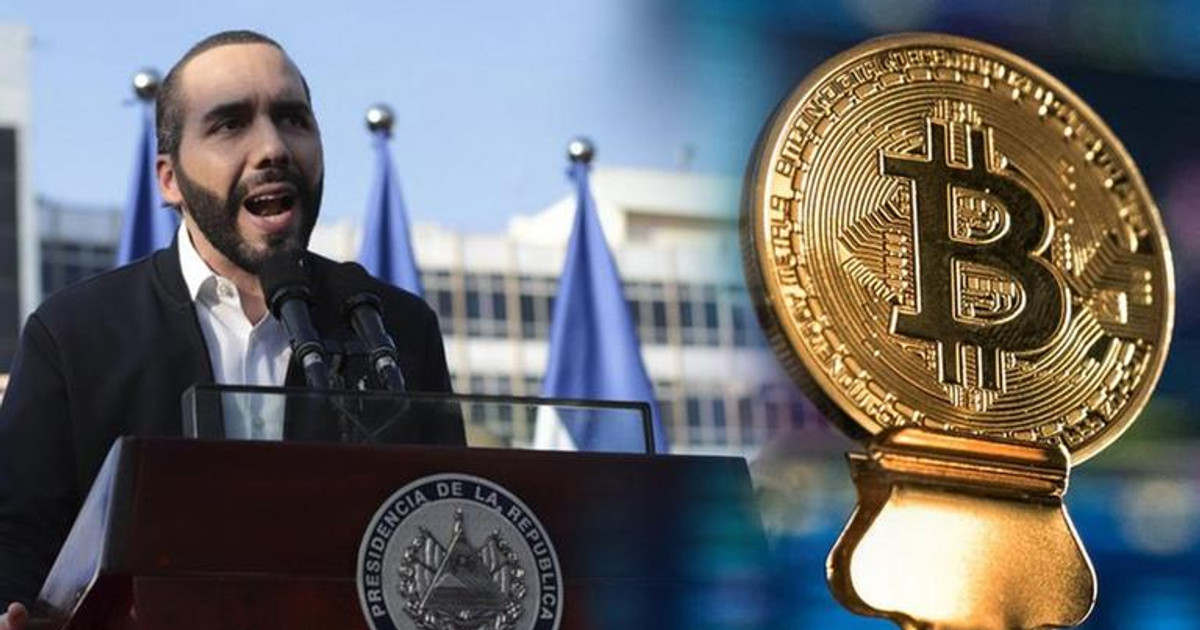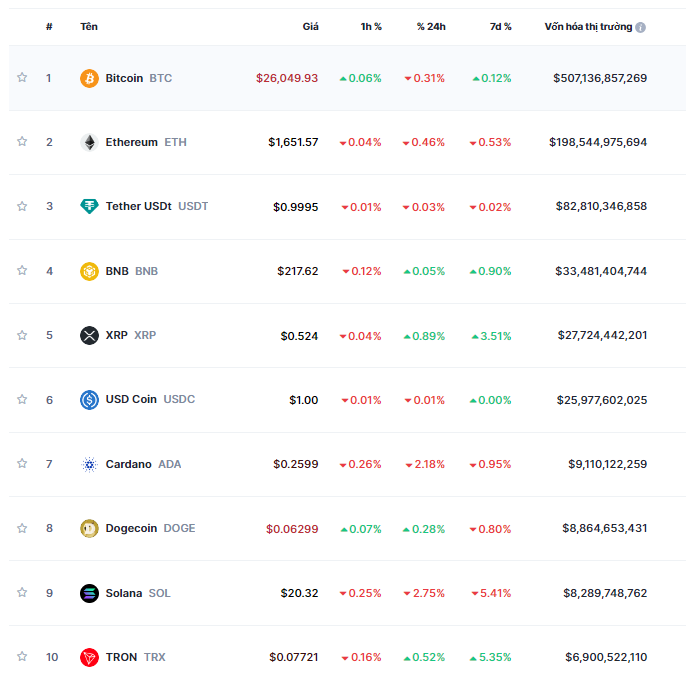
Digital asset legislation is no longer a distant concept in Vietnam – Illustrative image
|
It’s time to legalize digital currencies
The period between 2020 and 2022 witnessed a wave of digital asset investments in Vietnam. Cryptocurrencies became not just a technological concept but also a new avenue for wealth creation in the eyes of many young people. F0s flocked to international exchanges, Telegram groups proliferated, and excitement spread with each price surge. But after the x5 and x10 gains came a string of losses, exchange collapses, and worthless coins, coupled with confusion in a market lacking legal framework.
By early 2025, the legal tide began to turn. Directive 05/CT-TTg tasked the Ministry of Finance and related agencies with proposing a regulatory framework for digital assets. The National Assembly passed the Digital Industry Law, which first defined “digital assets.” No longer in a “gray area,” digital assets are gradually being brought into the official legal fold.
Investors still hold on to the “get-rich-quick” mentality
Mr. N.A., an amateur investor from Hanoi, recalled 2021: “Everyone said that you just needed to pick the right coin and your account could triple or quintuple in value. Initially, I made a profit of nearly VND 300 million, but then lost it all. Leverage was high, the coin value dropped, and the exchange disappeared. The more I lost, the more I wanted to recoup my losses, and in the end, I was left with nothing but debts.”
Similarly, Ms. T.L., a marketing employee in Ho Chi Minh City, became engrossed in checking her portfolio daily: “There were days when my balance increased by a few hundred USD, but there were also nights when I lost a third of my portfolio value within a few hours. Every time the tokens turned red, my heart sank. Eventually, I had to uninstall all coin-related apps to stop obsessing over them.”
The experiences of Mr. N.A. and Ms. T.L. are not unique but reflect the common journey of F0 investors—those new to the market—who tend to make decisions based on emotions, rumors, and tips from Telegram groups. They primarily trade on international exchanges or through OTC intermediaries, lacking legal protection, verification, and clear frameworks. Consequently, when risks arise, losses are inevitable.
According to Triple-A data, more than 17 million Vietnamese own digital assets, placing Vietnam in the top 7 globally with a 17% ownership rate—far surpassing the world average of 6.5%. This further emphasizes the need for this market to be guided towards greater transparency.
Mr. K.V., with nearly a decade of experience in the digital currency market, shared his perspective: “Without legal frameworks, trust in exchanges relies solely on… promises. When incidents occur, users are left largely unprotected. I’ve lost money due to exchanges being ‘hacked,’ only to be told that they… bear no responsibility. If Vietnam establishes regulatory controls, even just requiring exchanges to disclose their insurance policies, it would be a significant step forward.”
Laws cannot replace prudence
However, it’s evident that not everyone will suddenly become a “wise investor” simply because of the presence of laws. Investment behavior is often deeply rooted in psychology, and psychological factors cannot be altered overnight. A 2023 survey revealed that nearly 40% of digital currency investors in Vietnam admitted to investing based on emotions or rumors, despite being aware of the high risks.
Ms. K.T., a long-time investor in Ho Chi Minh City, offered a candid assessment: “While legal frameworks enhance market safety, the biggest risks lie within the investors themselves. If people continue to chase rumors and blindly surf the waves, the presence of laws won’t make a difference.”
Mr. H.S., a blockchain expert, concurred: “Don’t expect laws to transform everyone into prudent investors. They provide a framework but not a guarantee of success.”
At an economic forum in June 2025, Mr. To Tran Hoa, Vice Head of the Market Development Division of the State Securities Commission, proposed that the sandbox approach is a suitable method to regulate innovative models such as digital assets. However, he emphasized that sandboxes are not “lawless zones” but should be established with clear criteria to encourage innovation while protecting investors.
To effectively test the digital asset exchange model, establishing a transparent market structure is mandatory. Mr. Phan Duc Trung, Chairman of the Vietnam Blockchain Association, suggested specific requirements: Assets must have a clear origin, smart contracts need to be audited, issuers must disclose whitepapers, and money flow must be traceable. Otherwise, sandboxes could become unchecked regions, no different from OTC disguised operations.
From an investor’s perspective, Mr. Đ.L. believes that with a clearer legal framework, many people will start thinking differently: “If investments can be reported for tax purposes, assets are protected, and transactions are transparent, the trend of accumulation and long-term investment will prevail. People will consider the true value of projects instead of chasing obscure coins based on hearsay.”
Mr. Q.A., who has been following the development model in Thailand, also suggested that if Vietnam exempts digital assets from taxes for a few years, it will attract F0 capital back through more legitimate channels. “Instead of encouraging people to find loopholes, provide them with a clear path to follow,” he said, envisioning a future where digital assets are seamlessly integrated into the financial system, making Vietnam a destination in Asia.
Will legislation restrain or open up the market?
Ultimately, a transparent market is the foundation for limiting risks and paving the way for technological advancement. However, not everyone is optimistic. A small investor like Ms. V.H. expressed her concerns: “Clear laws are good, but if the management is too tight, small players like me will still find ways to circumvent the system and turn to uncontrolled OTC exchanges. On the other hand, if it’s too loose, who can guarantee that the market won’t become a speculative playground?”
She raised a valid point: While laws can provide direction, they cannot entirely change the volatile nature of digital currencies. Investors still need to equip themselves with knowledge and risk management skills, rather than relying solely on legislation for protection.
As Vietnam stands at the threshold of a new era in digital finance, the path forward is full of promise and challenges. The enactment of laws regarding digital assets will be a catalyst for the market to shift from “emotion” to “strategy,” from speculation to accumulation, and from secrecy to transparency. However, it could also serve as a mere reflection if investors don’t change their mindset. The cycle may continue unless investors are willing to embrace a new perspective.
Mr. N.A., after experiencing losses, is now more cautious: “I haven’t given up on digital currencies, but now I only invest what I’m willing to lose.” Meanwhile, Ms. T.L. has chosen to step back and observe: “Whether there are laws or not, I still need time to understand this space better before diving back in.”
The current question is not just “Will the law make the market more transparent?” but also, “Are investors ready to change and embrace a healthier market?”
– 08:43 21/07/2025
The Upcoming Technical Standard: Managing the Crown Jewel of Billionaire Pham Nhat Vuong’s Electric Vehicle Empire
The Ministry of Science and Technology has taken a proactive approach to spearhead the development of a national technical regulation (QCVN) for electric vehicle charging stations. This involved an extensive study of international regulations and standards, as well as surveys of manufacturers, assemblers, importers, businesses, and testing facilities across Vietnam’s northern, central, and southern regions.
Why is Vietnam Spending $1 Billion on Rice Imports in Just 7 Months?
It may come as a surprise to many that Vietnam, a country renowned for its rice production, is spending billions of dollars on rice imports. With these substantial imports, the country is poised to become the second-largest rice importer in the world.











































